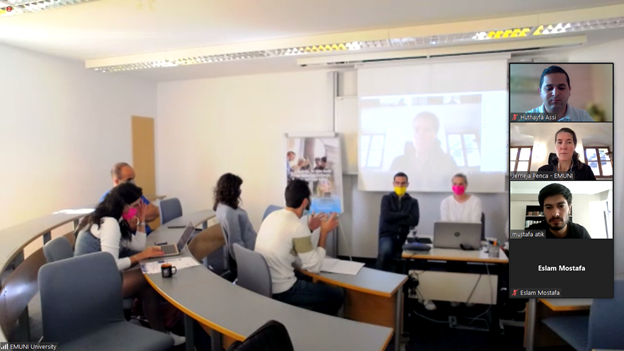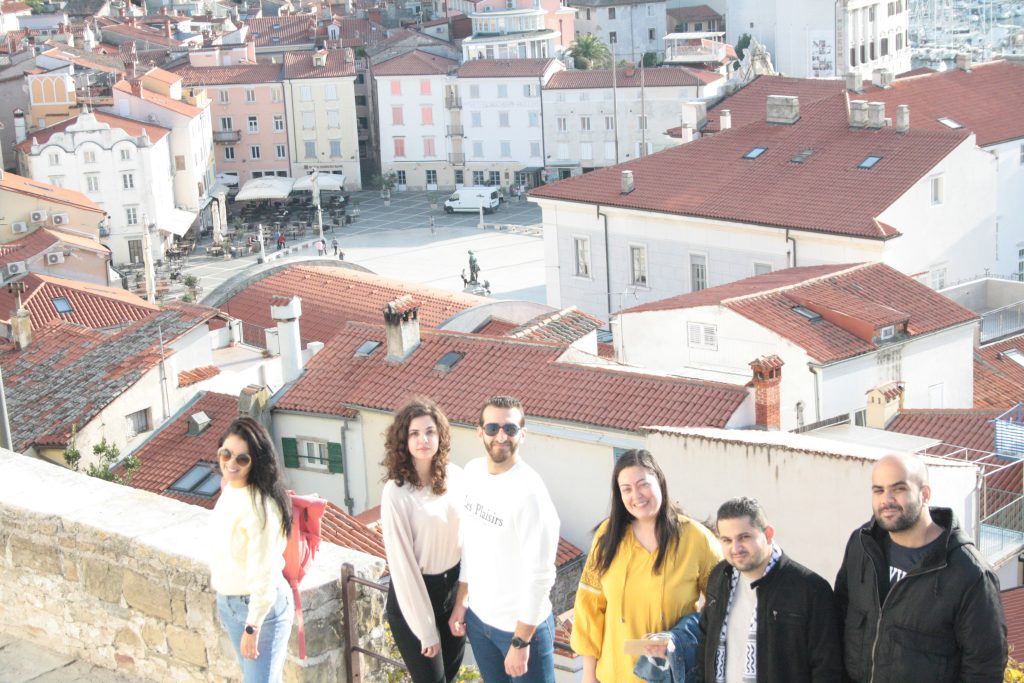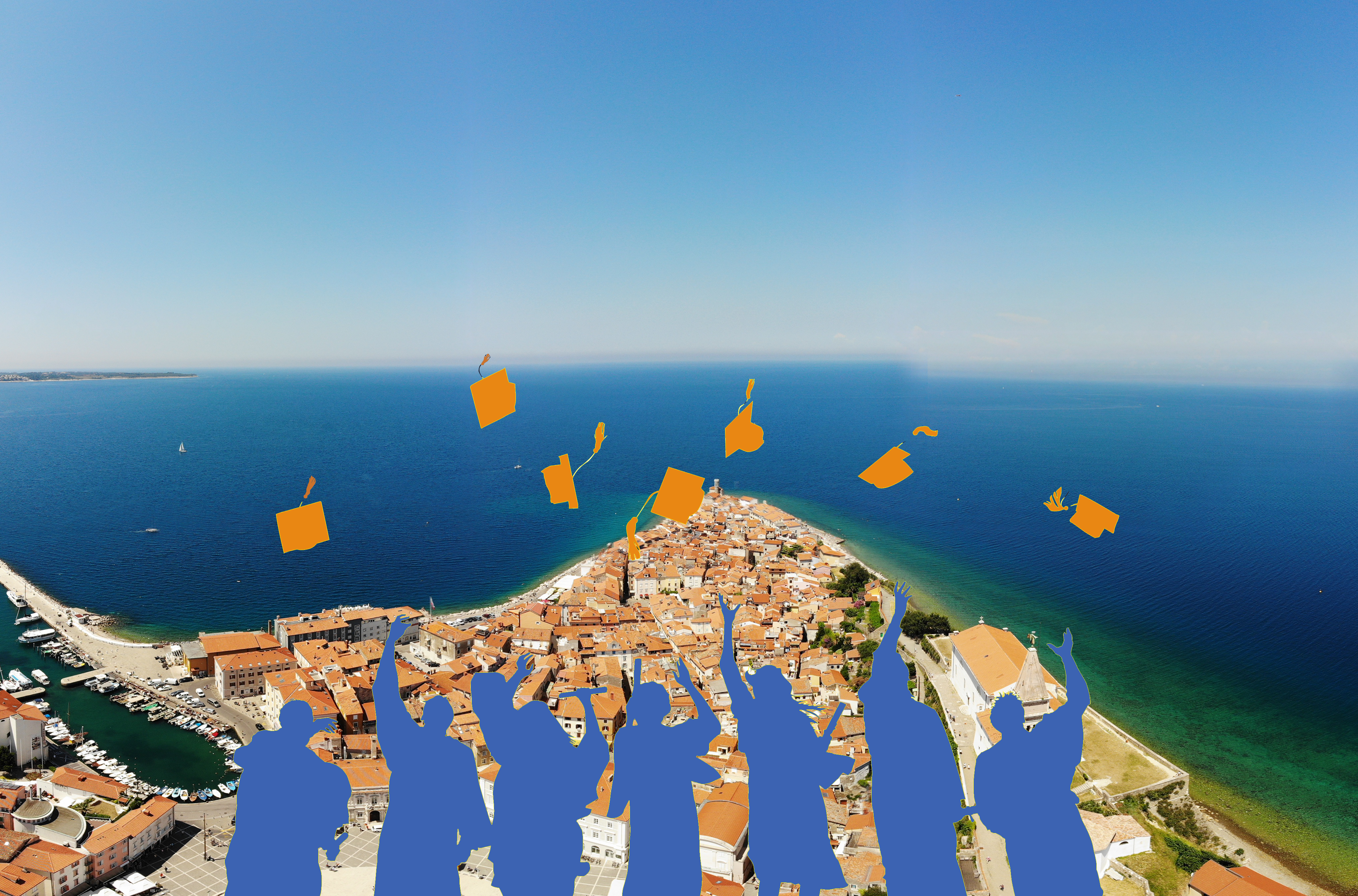A look into EMUNI’s unique approach to education and how it helps in challenging times
Be prepared
When the global coronavirus pandemic hit, in early 2020, many economies across the world ground to a halt and suspended any kind of in presence activity as a result of precautionary lockdown measures. Needless to say, education and academia were not spared. Suddenly in-person teaching and the basics of social life at school became a health liability.

For better or for worse, life uploaded itself onto the internet and Education institutions had to adapt to the often evoked “new normal” of delivering classes online. For certain institutions, this was an uneasy step into a future that had arrived too quickly. However, on the upside, this sudden development granted many students to continue their education against all odds. Two years later, there is still much debate on whether online learning was a necessary evil, or whether it represents the future of education.
Nonetheless, on this debate, EMUNI was way ahead of the curve. In fact since 2015, in its Master’s programme in Intercultural Business Communication (IBC), EMUNI offers a unique approach called blended learning.
Blended learning
What is being blended in Blended learning, though? Course delivery methods of course. The IBC programme is designed around two main teaching periods, one in which lectures are delivered online through a digital platform and another that is delivered face-to-face in the classroom. This approach allows EMUNI to offer the best of both worlds.
This way, the IBC is an agile and flexible Master’s programme, in which students can tailor their education around their needs such as family, social life or their professional careers. In fact, many EMUNI students do, since this method allows them to continue their studies while they also further their careers.
Autonomy:
Blended learning helps students to master self-discipline but also to manage freely their work-life-learning balance. In today’s education landscape this is crucial since the importance of life-long learning is now widely recognised and since changes in the demands of the labour market require constant updating of one’s skillset.
Adaptability:
The variety of means and resources in use for communication among teachers and students trains a wide array of communication and IT skills that can be adapted to several media. As 2-year IBC student Nehal said: “It helped me enhance my digital skills as a result of participating in the programme virtually”.
Her colleague Imad agrees: “Blended learning is a good option for people who seek to pursue their studies and work at the same time. EMUNI offers a flexible schedule for its students, you get the chance to experience virtual learning, which personally allowed me to sharpen my computer skills”
“Blended learning is a good option for people who seek to pursue their studies and work at the same time. EMUNI offers a flexible schedule for its students, you get the chance to experience virtual learning which personally allowed me to sharpen my computer skills, and be in an environment of students that come from different cultural backgrounds, which promotes multiculturalism and coexistence.”
Imad Nemili, Second Year IBC Student and Student Representative on EMUNI’s Management Board
Durability:
Blended learning was an asset for EMUNI, during the pandemic, its mixed teaching methods allowed our university to weather the shock of Covid-19 better than most. In an uncertain future, Blended learning guarantees EMUNI to withstand disrupting circumstances and to keep ensuring that students receive their education.
Education will not be streamed

But the pandemic has made apparent to everyone how much social life, exchange, and dialogue are important to education. In its Annual Conference on Higher Education in the Covid Era, all panellists and attendees agreed that the future of education does not rest exclusively on virtual learning. This is why EMUNI recognised back in 2015 that students need to meet, mingle, network and interact in person to benefit fully from their learning experience. This is especially true for a Programme on Intercultural Communication in which the diverse cultural background of its students is one of its most enriching assets. Or, as Imad puts it, “promotes multiculturalism and coexistence”.
This is why the face-to-face part of the blended learning approach is integral to it. In fact, it allows students from across the Mediterranean to come together and create their own cultural melting pot in Piran. Moreover, students benefit from the breath-taking beauty of EMUNI’s location on the Istrian coast and are usually able to take full advantage of the spring months in a region that offers many seaside perks, luxuriant Slovenian landscapes and that is located at a stone-throw from Lubiana, Vienna, Venice, Trieste and the entire Istrian coast. No matter how hard one studies, EMUNI’s location alone is enough to recharge one’s batteries, explore, and discover.
Echoing Nehal: “Visiting Piran, which is such a wonderful coastal city, is a great thing that happened to me through this blended program. Also having 2 face-to-face periods a year, is very beneficial for the purpose of intercultural communication. I meet my colleagues, professor, and EMUNI’s very helpful staff who always make me feel that I am having a customized education.”
Nehal Nabil Nasef, Second Year IBC student and Member of EMUNI’s Academic Senate
In the end, the pandemic prompted all Higher Education Institutions to “level up” and explore new ways to ensure the education of their students, but it did not catch EMUNI unprepared. Instead, it reinforced its confidence in the uniqueness of its offer and its commitment to a path of innovation in higher education.
EMUNI’s IBC programme will open applications for its 2022/2023 on 1 April and our staff will organise info-days to guide prospective students through the application process, stay tuned and follow our channels for more information.

